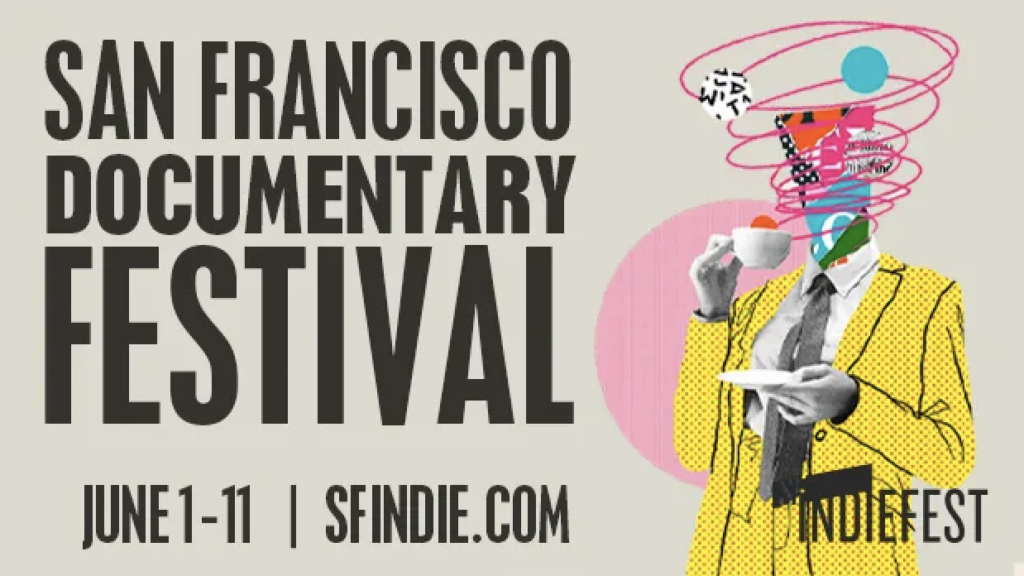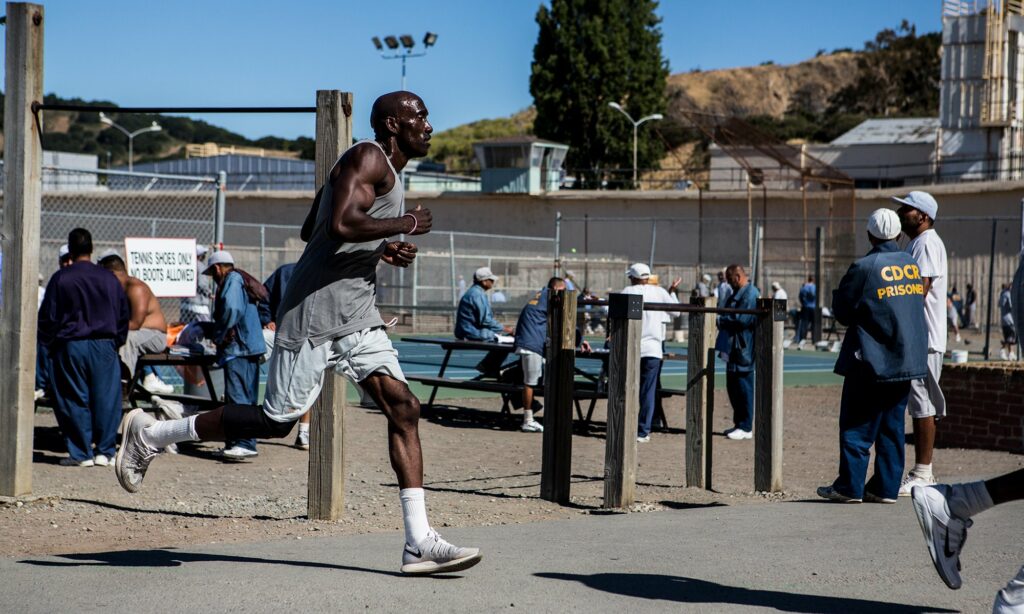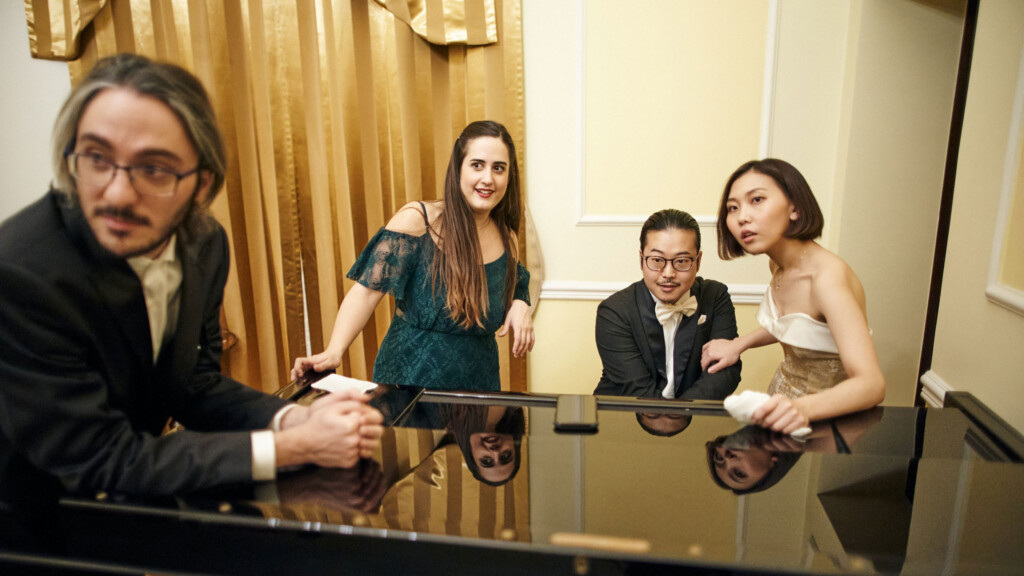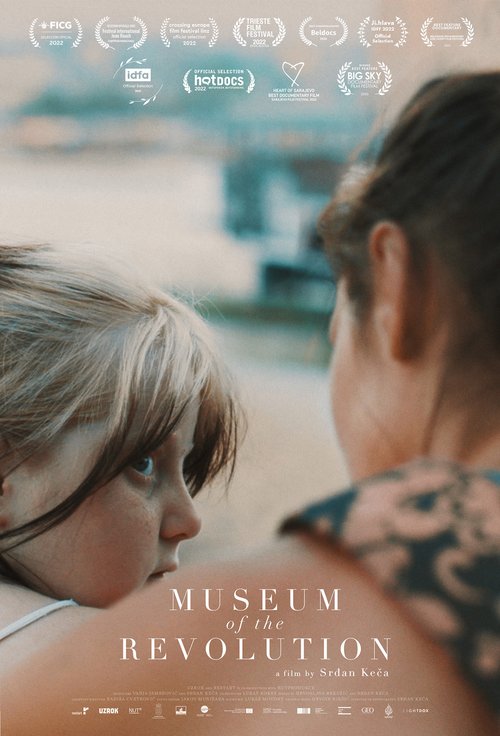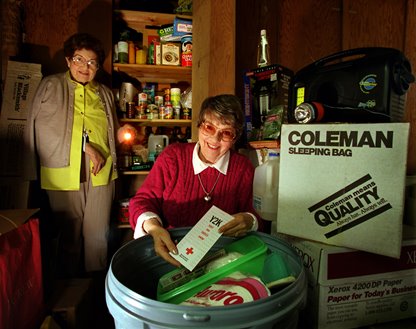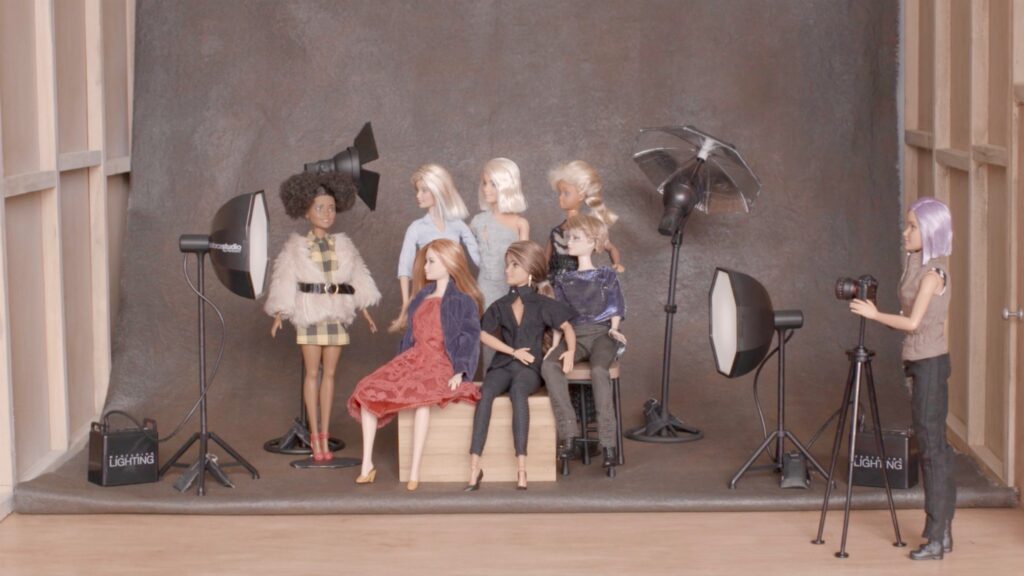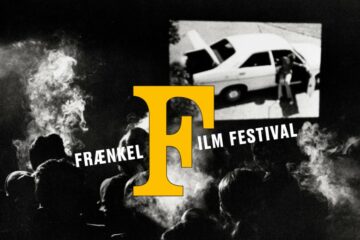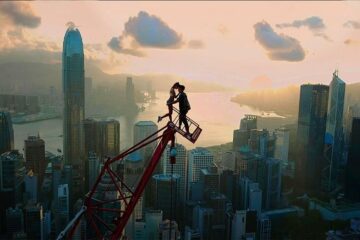The 22nd San Francisco Documentary Film Festival is Here!
The month of June is here, which means it’s time for the return of the S.F. Documentary Film Festival (hereafter “S.F. DocFest”). This festival, now in its 22nd year. Is an offshoot of the well-respected San Francisco Independent Film Festival. This year’s S.F. DocFest is a hybrid event running June 1-11, 2023. This means a viewer can watch the festival’s offerings either virtually or in person at the Roxie Theater. However, it should be noted that several festival films will have only in-person screenings.
The 39 features and 47 short films that make up this year’s S.F. DocFest program covers a wide range of entertaining subjects. Local blues legend Fantastic Negrito tells the story of his colorful life. See what happened to the remains of an uncompleted museum intended to celebrate Yugoslavia’s socialist revolution. Relive the countdown to the new millennium and see the various freakouts engendered by fears of the Y2K software bug. Meet the woman whose allegedly recovered memories made her Patient Zero for Satanic Panic hysteria. Or learn about the extraordinary life of the transgender woman who became an important local labor and environmental activist.
But S.F. DocFest does more than just show new films. It also offers some intriguing live events. Celebrate the birthday of The Purple One with the Prince’s Birthday Sing-A-Long hosted by Lulu Cachoo. Check out the artwork of acclaimed local homeless artist Ronnie Goodman at the Opening Night Art Show and Afterparty (The late artist used to have his encampment near the Roxie at 16th and Capp Streets). Finally, the Documentary Ghosts panel offers filmmakers Katie Galloway, Nancy Kates, and Kevin Kunze the opportunity to talk about documentary projects they had started and loved, yet could never complete for one reason or another.
Now here’s a taste of what you can expect cinematically at this year’s S.F. DocFest:
The first of two Opening Night Films takes viewers to San Quentin prison to check out its 1000 Mile Club. The inmates who are members of this club train for and run a marathon on the prison yard’s dirt and concrete circle. Christine Yoo’s feature “26.2 To Life” shows how the prisoners who participate in this unusual marathon are unexpectedly transformed by the experience. Incidentally, Opening Night Artist Ronnie Goodman came up with the idea for this prison marathon.
The other Opening Night film comes from Yvan Iturriaga and Francisco Nunez Capriles. Their film “Fantastic Negrito: Have You Lost Your Mind Yet” delivers a portrait of Grammy-winning Oakland bluesman Fantastic Negrito aka Xavier Dphrepaulezz. As the bluesman works on his newest album, he recounts an incredible life story which includes being a Black Muslim kid in rural Massachusetts. The directors and various subjects in the film (hopefully including Xavier) will appear at the screening.
Prefer to check out films about musicians who are equal parts brilliance and self-destructiveness? Then check out Jed I. Rosenberg’s “Louder Than You Think,” a portrait of original Pavement drummer Gary Young. On one hand, the film’s subject helped Pavement rise to fame and even contributed to launching lo-fi music. On the other hand, his antics on- and offstage after excess drinking and recreational drug use would eventually wear out their welcome. Thirty years on, Young still has no regrets for his youth…even with his scoliosis and shriveled liver.
Equally having no regrets for the way they spent their younger days are the young musicians who are the subjects of Jakub Platek’s “Pianoforte.” Since they were children, these young pianists from around the world have been practicing to compete in a once-in-a-lifetime event. It’s the International Chopin Piano Competition, held once every five years in Warsaw, Poland. But the competition happens to be incredibly brutal: after three rounds, only ¼ of the original contestants are left.
As the title “No Time To Fail” suggests, the subjects of Sara Archambault and Margo Guernsey’s film also face high stakes pressures. These Rhode Island election administrators have the essential job of protecting the administration of free and fair elections in the state. However, two unexpected factors complicate their job: responding to the COVID-19 pandemic and the brazenly repeated “stolen election” lies of the Orange Skull.
Another case of holding onto professional integrity in the face of public lying can be found in Jose R. Garcia’s “The AD-X2 Controversy.” In the 1950s, a charismatic salesman aggressively flogged a chemical additive which would allegedly revolutionize the car battery industry. But a prominent scientific agency tested the additive and found it did nothing for car batteries. Yet the agency’s director wound up having to defend his agency’s scientific integrity from both public hostility and political pressure to recant the negative results.
Going against the grain of public and political opinion might also describe Malcolm Kenyatta’s run for a U.S. Senate seat. As Timothy Harris’ “Kenyatta: Do Not Wait Your Turn” chronicles, this “poor, Black, and gay kid from North Philly” is determined to reach the Washington halls of power. But will the political chimera of “electability” ultimately doom Kenyatta’s efforts?
A different sort of political dream takes slightly more material form in Srdan Keca’s feature “Museum of the Revolution.” In 1961, the ground was broken in Belgrade on a project to build a grand museum intended to preserve the truth about the Yugoslavian people and celebrate socialist Yugoslavia. However, the work never got beyond building the proposed museum’s basement. Now, decades later, that uncompleted project has become the home for a trio of outcasts from Yugoslavian capitalism: a mother and daughter who earn a little money washing car windows, and an old woman who’s close friends with the daughter.
A more domestic class of unhoused people can be found in Kyung Lee’s “We R Here.” Using cell phone footage, the film features homeless individuals in Oakland, CA talking about their lives and hopes. Providing a narrative thread through Lee’s film are the stories of three unhoused individuals going from one site to another, hoping to find the living situation that will take them off the streets.
Despite having a roof over their heads, the central subjects of Brendan Geraghty’s “Motel Drive” are also essentially homeless. The Shaw family lives in a decrepit motel room which is part of an area that’s little more than housing for Fresno’s poor, drug addicts, and sex workers. Ironically, back in the 1950s, these same motels used to be a luxurious performance venue for the likes of Elvis Presley and other big 1950s stars. The proposed High Speed Rail Project may revitalize the Motel Drive area and even lead to the Shaws obtaining better housing and education access. But over the eight years covered by the film, things do not go as smoothly as hoped.
Also hoping to change their lives for the better are the pregnant Chinese women in Leslie Tai’s Centerpiece Film “How To Have An American Baby.” These women have come to a particular Southern California town for what’s called “birthing vacations.” If successful, the newborn children will have U.S. citizenship. But Tai’s film is about more than these vacationing women. It’s also about the maternity hotel operators, the Chinese birth tourism agents, and even the chauffeurs behind the shadow economy that make these vacations possible.
The world-rippling consequences of a more short-sighted economic decision happens to be the subject of Brian Becker and Marley McDonald’s “Time Bomb Y2K.” An idiotic cost-cutting decision unintentionally results in the strong likelihood of the world’s computer systems crashing once the year 2000 is reached…and then resetting to the year 1900. This film uses period footage to capture both the efforts of computer coders to avert disaster as the clock ticks down to Y2K…and the mix of hysteria and exploitation that marked mundanes’ reaction to the year 2000 problem.
Nisha Pahuja’s “To Kill A Tiger” may be another film leaving a bad taste regarding one’s fellow humans. Ranjit lives with his daughter in Jharkand, India. On the night of a family wedding, the father is horrified to discover his daughter has been dragged into the woods and gang-raped by three men. The Jharkand community’s solution is to have the violated woman marry one of her attackers. Ranjit struggles to get justice for his daughter with the help of a gender justice NGO. But the other villagers soon turn against the father, and the three rapists’ families start making death threats.
Viewers who feel like putting distance between themselves and their fellow humans may be simpatico with queer maverick Eileen. She’s the central subject of Emily Kaye Allen’s feature “Cisco Kid,” a woman who’s walked away from mainstream society to forge a life for herself. Eileen’s place of choice is the desert town known as Cisco, now a ghost town cut off from time and whose other inhabitants are memories of the past.
The bar that’s the subject of Peter Paul Jacques’ short “See You At The Bar: The Casa Loma Story” might also be another place haunted by the past. Located in a San Francisco gay residence hotel, the bar served as a party spot for Generation X misfits in the 1980s and early 1990s.
A local and beloved misfit of a different sort is given her due in Brian J. Favorite’s experimental short “Tony&Denise: Cinematic Memoir Of Denise D’Anne.” San Francisco’s trailblazing transgender labor and environmental activist Denise D’Anne recounts a life journey that began with childhood abandonment at a Brooklyn orphanage. Despite that unpromising beginning, D’Anne would later become an executive secretary to Southern Pacific Railroad as well as the catalyst for one of the first organized recycling programs.
Another queer-themed film whose subjects are happy to take the proverbial road less traveled is Theo Montoya’s “ANHELL69.” The title refers to a film Montoya wanted to make with friends and chosen family. The documentary charts how the plans to make this film collided with Colombian societal pressures, particularly the ones surrounding queer youth. Yet the documentary’s also a reimagining of a Colombia not marked by a history of violence and drugs.
A history of recreational drug use marks the life of legendary punk rocker Iggy Pop. In BLONDY Sophie’s globetrotting interview film “Tell Me Iggy,” the hard-living punk rocker talks about such past excesses as well as his concerts and his current projects. Appearances by John Waters, Debbie Harry, and Beatrice Dalle give the film quite a few coolness points. However, Johnny Depp’s presence will subtract a few of these earned points.
Personal coolness is not the criterion director Pawel Kozinski uses for his film “The Balcony Movie.” Basically, all Kozinski seeks is someone who’s passing by on the street below his Warsaw apartment balcony and is willing to talk to him. The biggest takeaway from the resulting recorded conversations is a group portrait of how individuals deal with life in the world.
Could becoming a club member help improve Americans’ ability to deal with the world or even their fellow citizens? That’s the intriguing contention made by directors Rebecca Davis and Pete Davis in their film “Join Or Die.” Legendary social scientist Robert Putnam’s “Bowling Alone” plays a key role in supporting the directors’ points as it looks into the causes behind America’s decline in community connections.
One example of establishing social connection can be found in Claudia Owusu and Ife Oluwamuyide’s tribute to Black girlhood “Ampe: Leap Into The Sky, Black Girl.” For the uninitiated, ampe is the name of a traditional Ghanian jumping and clapping game. It is through this game, which winds up promoting sisterhood and loyalty, that the viewer can feel the connection between sister cities Accra, Ghana and Columbus, Ohio.
Making bigots and religious fundamentalists uncomfortable turns out to be the cultural imperative du jour. This year’s S.F. DocFest steps up to the plate with its two Closing Night Films. First, Lagueria Davis’ feature “Black Barbie: A Documentary” tells the story of how the first Black Barbie doll came to be. It’s a personal account, for young Beulah Mae Mitchell (aka the filmmaker’s grandmother) started things rolling by asking why Mattel didn’t make a Barbie doll that looked like her.
The other Closing Night Film, Steve J. Adams and John Horler’s “Satan Wants You,” recounts the origins of the notorious cultural freakout known as the Satanic Panic. A lurid best-selling memoir called “Michelle Remembers” by psychiatrist Larry Pazder and his patient Michelle Smith provided the spark setting off the hysteria. That book allegedly recounted Smith’s supposed childhood abduction and psychological torture by a coven of baby-stealing Satanists. The basis for these alleged recollections were Smith’s supposedly recovered memories. Yet attempts to point out the logical problems with Smith’s story got drowned out by the amplification for Smith’s account provided by the Catholic Church, 1980s daytime television shows, and law enforcement. Many lives would be wrongfully ruined as a result of the Satanic Panic mass frenzy.
Here’s hoping this sampler of S.F. DocFest 22’s offerings will inspire readers to check out these or other films at the festival.
(For further information about S.F. DocFest 22’s films or to order festival tickets, go here.)


